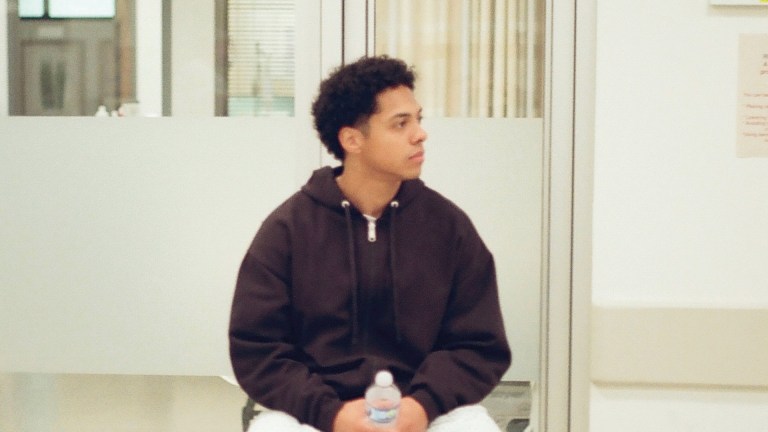“But there are a number of people who don’t have that. A lot of people in my position at the age I was at… it would have been a different story completely – it would have been going to my funeral. Suicide is the highest killer of men my age. I recognise how fortunate I am.”
At his lowest, Blades was supported by a businessman in Wolverhampton for whom he had done some work. The guardian angel helped him establish a business, which was featured on daytime BBC programme Money for Nothing, eventually leading to a gig hosting The Repair Shop. His own restoration was complete. The success of The Repair Shop is tied to a reaction against our disposable culture, says Blades.
“We don’t value things the way we used to. The Repair Shop values the craft, values the memory. It’s showing society how we should be.
“Buying new doesn’t serve any purpose,” he continues. “All we’re doing is buying new, getting rid of the old and it’s filling up the planet with a load of rubbish.
“When I was growing up in the Seventies I remember we used to have a guy that would come around the council estate to sharpen knives, scissors and stuff like that. You had the people picking up scrap iron. But it became a capitalist, consumerist society where if you can afford it, you buy new. It’s affordable and you don’t need to worry if it needs repaired.”
Christmas would be the ideal time to throw away our throwaway culture. Instead of buying new, why not get something special repaired for someone special?
Advertising helps fund Big Issue’s mission to end poverty
“That is a very good idea. I’ve got a couple of jumpers the elbows need sorted out on, so someone could put a patch on them so I could wear them again.”
But we can’t all visit The Repair Shop. Are there enough skilled experts still out there across the country?
“You just need to search,” Blades says. “Yellow Pages or Thomson Local is the place. Some of the guys and girls who do the repairing are old school so they’re not on the internet as much.”
Blades is determined to help the next generation of tradespeople too. Before being made homeless, Blades ran a charity with his ex-wife called Out of the Dark, which taught young people with behavioural problems a skill or trade.
He explains: “What I found working alongside social services in schools, they would have a thick report on this particular young person and once they’ve read that they have an opinion formed about that person. One of the things I used to do was never read anybody’s report. I would always take that person at face value. I would never focus on any of their issues.
“Giving them a craft gave them something to focus on other than the particular illness or behaviour problem then allowed them to shine. It is really important, especially for people like myself who are dyslexic.
Advertising helps fund Big Issue’s mission to end poverty
“I’ve had a number of people come in who can’t read or write – I have to teach them what the numbers are on a ruler – then once they’re able to make their first simple box their confidence levels go through the roof.”
“That’s what making does for you, it allows you to achieve the unachievable.”
Look out for The Repair Shop Christmas Special this Christmas









